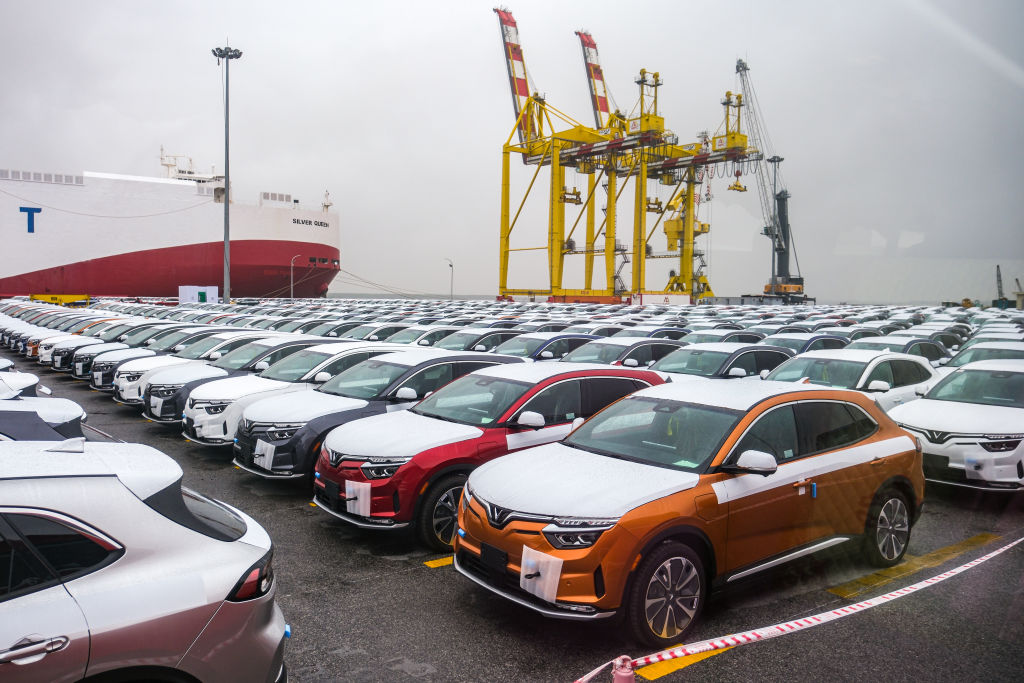
The last few days have been a financial see-saw of sorts for VinFast Auto, the Vietnam-based electric vehicle manufacturer that bet big on its planned entry into the U.S. market last year, and then went public via a special-purpose acquisition company (SPAC) merger earlier this month. For a hot minute this week, VinFast’s stock price rose to such heights that it was the world’s third-biggest car company by market capitalization, trailing only Tesla and Toyota; as of this writing, it’s fallen back down to earth, losing an astounding $90 billion or so in market value since Aug. 28.
And yet—even with that dramatic plunge, VinFast is still worth more than $95 billion, putting it ahead of dozens of more established companies including BMW, Volkswagen, GM, and Ford. In theory, VinFast’s value is based on the massive investments its parent company Vingroup (the largest conglomerate in Vietnam) has made into EV-only manufacturing and a unique proposition that its cars come with a leased battery—keeping consumer costs down, given the battery is an EV’s most expensive component. But through the second quarter of this year, the company has, by its own account, sold only 16,000 cars.
That, as shown in the chart above, is nowhere near the number of fully electric vehicles reportedly delivered by almost any of the other auto manufacturers in the same market-cap range as VinFast. The one exception is Porsche, a luxury brand that, despite the $90,000 starting price for its single EV offering, the Taycan, has still sold more EVs than VinFast in the first half of the year. Of course, the market value of Porsche and some of these others on this list are not tied to EV production, but rather to other offerings or brand equity. But VinFast’s stock price should be about EVs—which means the company has a long way to go prove that value is justified.
More Must-Reads from TIME
- Breaking Down the 2024 Election Calendar
- How Nayib Bukele’s ‘Iron Fist’ Has Transformed El Salvador
- What if Ultra-Processed Foods Aren’t as Bad as You Think?
- How Ukraine Beat Russia in the Battle of the Black Sea
- Long COVID Looks Different in Kids
- How Project 2025 Would Jeopardize Americans’ Health
- What a $129 Frying Pan Says About America’s Eating Habits
- The 32 Most Anticipated Books of Fall 2024
Contact us at letters@time.com